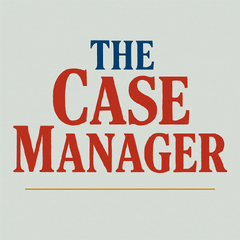Share This Article:

Strategies Case Managers Can Use to Improve the Health Literacy of the Injured Worker
21 Oct, 2025 Anne Llewellyn

The Case Manager
Healthcare has its own language, and many times, nurse case managers and other healthcare team members forget that most people don’t understand "our" "language." As a result, outcomes are subpar, the consumer experience is low, and costs rise.
In this post, I wanted to discuss health literacy and its impact on individuals, patients, their families, and the importance of clear communication in promoting understanding, informed decision-making, and improved health outcomes.
Even highly educated individuals can struggle with health literacy. That is because health literacy is not simply a matter of reading ability — health literacy encompasses a person’s capacity to:
- Find relevant health information and services
- Understand medical terminology, instructions, and options
- Use that information to make informed decisions about care and well-being
Let’s look at some strategies that nurse case managers can implement in their practice.
- Ensure the injured worker and his family understand the instructions important to their care: Patients with strong health literacy are able to follow medication directions, understand discharge instructions, and manage chronic conditions more effectively. They understand the importance of being proactive and asking for help, rather than being reactive and waiting for things to happen.
- Being health literate helps the injured worker understand how the healthcare system works. An example might be the injured worker who procrastinates on making appointments for physical therapy because they lack transportation to get to the appointment. As a nurse case manager, you can arrange transportation to assist the patients in getting to and from therapy. Not knowing how the system works prevents them from taking the necessary steps to improve.
- Making Informed Decisions: Health-literate patients learn to weigh risks and benefits of treatments, ask meaningful questions, and participate in shared decision-making. Becoming part of the team helps them regain control over their lives in a time when everything seems out of control.
- Improves understanding of medical conditions and treatments: Workers who grasp their diagnosis, treatment options, and recovery expectations are more likely to follow through with care plans.
- Reduces fear and confusion: An injury can be traumatic. Clear, accessible communication helps demystify the process and reduce anxiety.
- Encourages active participation: When workers understand their role in recovery, they’re more likely to engage in physical therapy, attend appointments, and follow restrictions.
Enhancing Case Management Outcomes Through Health Literacy
- Improves adherence to care plans: Health-literate patients are more likely to take medications correctly, attend follow-ups, and comply with work restrictions.
- Reduces delays and complications: Misunderstandings can lead to missed appointments, improper medication use, or reinjury. Health literacy helps prevent these setbacks.
- Supports timely return to work: Educated workers are better equipped to understand transitional duty, functional capacity evaluations, and vocational rehab options.
For nurse case managers, integrating health literacy into your practice means tailoring communication, using plain language, and checking for understanding—especially when guiding injured workers through complex recovery and return-to-work processes.
I hope this article provides you with insights into how you can utilize health literacy strategies to enhance your work.
AI california case file caselaw case management case management focus claims compensability compliance compliance corner courts covid do you know the rule employers exclusive remedy florida glossary check Healthcare hr homeroom insurance insurers iowa kentucky leadership NCCI new jersey new york ohio pennsylvania roadmap Safety safety at work state info tech technology violence WDYT west virginia what do you think women's history women's history month workers' comp 101 workers' recovery Workplace Safety Workplace Violence
Read Also
About The Author
About The Author
-
Anne Llewellyn
Anne Llewellyn is a registered nurse with over forty years of experience in critical care, risk management, case management, patient advocacy, healthcare publications and training and development. Anne has been a leader in the area of Patient Advocacy since 2010. She was a Founding member of the Patient Advocate Certification Board and is currently serving on the National Association of Health Care Advocacy. Anne writes a weekly Blog, Nurse Advocate to share stories and events that will educate and empower people be better prepared when they enter the healthcare system.
More by This Author
- Feb 05, 2026
- Anne Llewellyn
- Jan 27, 2026
- Anne Llewellyn
Read More
- Feb 06, 2026
- Chriss Swaney
- Feb 05, 2026
- Anne Llewellyn
- Feb 05, 2026
- Frank Ferreri
- Feb 03, 2026
- Frank Ferreri
- Feb 03, 2026
- Chris Parker
- Feb 02, 2026
- Liz Carey




